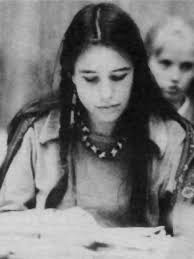Winona LaDuke [1959-0] American    
Rank: 101
Activist, Environmentalist
Winona LaDuke is an American environmentalist, economist, and writer, known for her work on tribal land claims and preservation, as well as sustainable development. Change, Cool, Government, Patience, Power, Strength, Time, War |  |